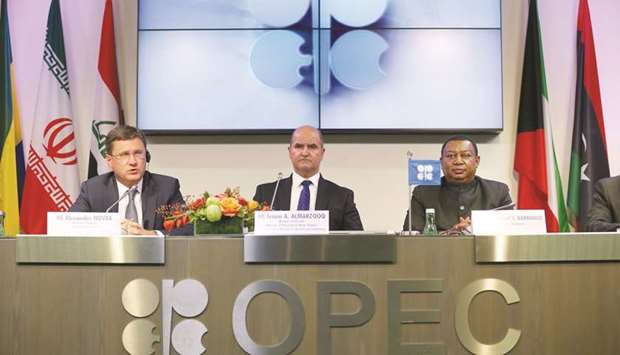Futures toggled within a 49¢ range in New York yesterday, switching between small gains and losses. As an Opec committee meeting wrapped up, Russian Energy Minister Alexander Novak said the group and allied producers can wait until at least January to consider prolonging the output limits. At the same time, he said some of the countries participating in the cuts have room to improve compliance with the caps they signed up for. The next key event will be a November 30 meeting of Opec ministers.
“It’s going to come down to the meeting,” Tariq Zahir, a New York-based commodity fund manager at Tyche Capital Advisors LLC, said in a telephone interview. Traders will be more interested in deeper production cuts than an extension of the existing constraints, he said.
Oil is on track for only its third monthly gain for 2017 as supply cuts by the Organisation of Petroleum Exporting Countries and partners such as Russia showed signs of whittling the worldwide crude glut. The oil market is well on its way to rebalancing, Kuwait’s Oil Minister Issam Almarzooq said.
Nigeria, which along with Libya is currently exempt from the supply-reduction deal, reiterated that it would cap output once its production stabilises around 1.8mn barrels a day.
West Texas Intermediate for November delivery fell 3¢ to $50.52 a barrel at 12:18pm on the New York Mercantile Exchange. Total volume traded was about 39% below the 100-day average. Prices are on track for a 1.2% weekly advance.
Brent for November settlement added 21¢ to $56.64 a barrel on the London-based ICE Futures Europe exchange. The global benchmark crude traded at a premium of $6.13 to WTI.
Brent futures for near-term delivery are trading at a marked premium to longer-term contracts, a pattern known as backwardation that shows demand is exceeding supplies.
Oil inventories in developed economies have dropped by 170mn barrels since January and backwardation in prices demonstrates stockpiles are shrinking and demand is rising, Kuwait’s Almarzooq said before the meeting yesterday.
There is no reason for deeper cuts, he told reporters in Vienna. Meanwhile, Opec’s secretary-general Mohammad Barkindo said it’s critical for the group to maintain focus and fully implement agreed curbs. “People are kind of scratching their heads right now about whether or not the backwardation in Brent really means the global markets are moving to an under-supplied scenario,” Chris Kettenmann, chief energy strategist at Macro Risk Advisors LLC in New York.

